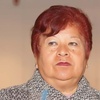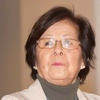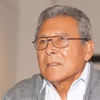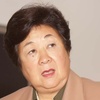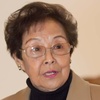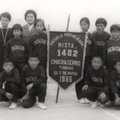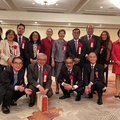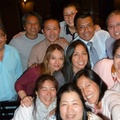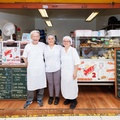Read Part 1 >>
THE RETURN TO PERU
A siren announced Japan's surrender. Many Japanese refused to believe that their country had been defeated, but the war had come to an end, making the concentration camp unnecessary.
The question now being asked was: What is to become of the Japanese from Peru and their children? The Peruvian government prohibited their return. Rejected by the very same government that had expelled them, some Japanese put down roots in the United States, while others returned to Japan, only to find hunger and devastation.
The Tochio Villanueve family considered emigrating to Japan. The father's oldest brother said that he would welcome the family into his home in Yokohama, but the family turned him down. "My father said, 'our family has six members, we can't impose ourselves on my brother who is suffering already and has little to eat," comments Teresa.
There were people who did return to Japan believing that their country had won the war. When they discovered the truth, they warned others who were thinking of going back to Japan: "Don't come back, there is nothing to eat, it is terrible, it was all a lie, we lost."
Those families with a Peruvian mother or Peruvian nationality were able to return to Peru.
It wasn't so simple, however. The Tochio and the Mishima families had to deal with complicated legal proceedings; in 1947, two years after the war had ended, and although it took different trips, they made their anxious return back to Peru.
Meanwhile, they had to work hard to succeed. Thanks to the support of a lawyer, they found work in a frozen food factory in New Jersey. Sisters Teresa and Carmen recall humorously that the American workers always greeted their mother with an affectionate "Hello Peru."
The parents were convinced that their future was in Peru. Both had worked business and wanted to return to what they knew and did well.
When the Tochio Villanueva family returned to Arequipa, they discovered that the store that had been left in the hands of the mother's sister had been poorly managed and in debt. They sold off the remaining merchandise and paid off their creditors. Afterward they moved to Lima where they received support from the Villanueva family, which allowed them to rebuild their lives.
The Mishimas didn't have any stores, but at least they were able to keep their house. Using the money that he had earned in New Jersey and elsewhere, the father entered the fish meal business.
Before their deportation, both families enjoyed prosperity. After spending almost five years in the United States, they were able to remake their lives in Peru, although not at the same level as before.
Despite everything that had happened, however, the parents were neither bitter nor resentful. They also didn't inculcate hatred in their children. Only noble feelings were found in their hearts. Besides, Peru was the country that they had chosen for their children.
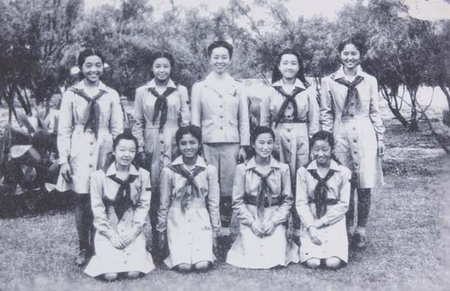
Crystal City: Girl Scouts in Crystal City. Yuriko Mishima, standing, second to the left. (Photo cortesy of Yuriko Mishima).
* * *
RE-ENCOUNTERS
Sharing a discrete experience such as life in a concentration camp created powerful ties. Since 1984 the former deportees have come together on fourteen occasions, the last time in Las Vegas.
A few times they met in Peru, the first time in 1995 and the second in 1999 during the centenary of Japanese immigraton to Peru. There also were two reunions in Japan (in Okinawa in 2004 and in Hiroshima in 2008). The remaining reunions have taken place in the United States.
The 1995 reunion, in particular, was special because many Japanese returned to Peru for the first time since their deportation, more than half a century ago. About twenty people from Japan and some fifty from the United States attended.
Yuriko Mishima wrote a few verses to celebrate the occasion:
Once again reunited.
In my heart I still keep
what we once shared:
sorrow and happiness
from the concentration camp.
* * *
COMPENSATION
Between 1999 and 2000 the Japanese and their families who has been deported from Latin America received $5000 in compensation, as well as a letter signed by President Bill Clinton.
Not everyone in Peru accepted the money, saying that it was ridiculous in light of all the suffering that the Japanese had experienced. Japanese-Americans received $20,000.
Carmen Mochizuki, a Peruvian Nisei, was deported along with his parents and siblings. At the end of the war he traveled to Japan, but he soon established roots in the United States. Upon receiving President Clinton's letter, he went to Okinawa and deposited the letter in his parents' butsudan, or Buddhist altar. Justice was rendered.
* * *
TESTIMONY OF INJUSTICE
A monument was erected on the same spot where a concentration camp once stood; the monument reads:
World War II
Concentration Camp, 1943-1946Due to circumstances beyond their control, and as a consequence of World War II, persons of Japanese descent, natives as well as American citizens, were arbitrarily and unjustly imprisoned in a concentration camp located here during World War II.
This monument is located in the same place where a cabin for two families once stood; it serves as a reminder that the injustices and humiliations suffered as a result of hysteria, racism, and discrimination should never happen again.
November 1985
* * *
"I IMMEDIATELY THOUGHT OF MY PARENTS"
Carmen Tochio Villanueva
"When I heard of the apology, I immediately thought of my parents. The apology was more for them than for me. No president had done such a thing before on our behalf. It wasn't a nice thing what they did to my parents. Well, that's how I felt, that they should have apologized much sooner. If the president has done it, it's a good thing.
Miyoko Mishima
"It was time for a president to apologize for everything that had happened, for the injustices that had been done when they sent us away. It was only right for the president to make an apology."
Humberto Tochio Villanueva
"For me, more than anything else, the apology was mere words, nothing more because of its poor timing (being so late in coming), it seems to me that it was not really an apology, except that it should have contained monetary compensation due to the deprivation and uprooting that we experienced, and which caused economic problems for us after World War II. I don't have any particular feelings about it because so much time has passed that it's like it never happened...and that President García's apology, as I said, was simply rhetoric because there was no compensation, because it was the Peruvian government rather than the American government that has caused us so much pain."
Teresa Tochio Villanueva
"Nobody had ever done it before, and so much time had passed. Recently, the president did it (issued an apology), good, perhaps out of gratitude for all of Japan's investment in Peru. They caused so much pain, why seize innocent people who had nothing to do with the war. The United States said, "We'll keep these Japanese as a barter for prisoner exchange," but we are human beings. No government should act like that.
Yuriko Mishima
"I got emotional, I cried. So much time [had passed], my parents' suffering, so many innocent people; it was all President Manuel Prado's fault. No president had ever apologized. President García interacts with the Japanese, with the Nikkei, and he has traveled to Japan; he realizes what happened was wrong, that it was a cruel thing to do. I get emotional, it was a very good thing what President García did. After seventy years, can you imagine, seventy years. We were innocent, but they took us away.
* This article was made possible thanks to an agreement between the Japanese-Peruvian Association (JPA) and the Discover Nikkei Project. It originally appeared in the journal Kaikan, 58 (July 2011), and republished for Discover Nikkei.
© 2011 Asociación Peruano Japonesa; © 2011 Fotos: Asociación Peruano Japonesa / Álvaro Uematsu



